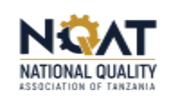Training & Development
Training and Development
Refers to the educational activities within an organization created to enhance the knowledge and skills of employees, thereby improving their performance and preparing them for future roles and responsibilities. This category includes various programs and initiatives aimed at fostering continuous learning, professional growth, and organizational development.
1. Capacity Building Training
Capacity building training involves developing the skills, knowledge, and abilities of employees and stakeholders to improve their effectiveness and performance. This includes:
- Technical Skills Training: Providing specialized training on specific technical skills relevant to the job or industry.
- Soft Skills Training: Enhancing interpersonal skills such as communication, teamwork, leadership, and problem-solving.
- Leadership Development: Preparing individuals for leadership roles through training in management skills, strategic thinking, and decision-making.
- Compliance Training: Educating employees on regulatory requirements, company policies, and ethical standards to ensure compliance.
2. Mentoring and Coaching Programs
Mentoring and coaching programs involve personalized support and guidance to help individuals achieve their professional goals and improve their performance. This includes:
- One-on-One Coaching: Providing tailored coaching sessions to address specific challenges, enhance skills, and support career development.
- Mentorship Programs: Pairing less experienced employees with seasoned professionals for guidance, knowledge sharing, and career advice.
- Peer Coaching: Facilitating coaching relationships among peers to encourage mutual learning and support.
- Executive Coaching: Offering specialized coaching for senior leaders to enhance their leadership effectiveness and strategic impact.
3. Workshops and Seminars
Workshops and seminars are interactive sessions designed to provide participants with practical knowledge and skills on specific topics. This includes:
- Skill-Building Workshops: Hands-on training sessions focused on developing particular skills or competencies.
- Educational Seminars: Informative sessions led by subject matter experts covering industry trends, best practices, and new technologies.
- Professional Development Events: Opportunities for employees to learn, network, and share experiences with peers in their field.
4. Online Learning and e-Learning
Online learning and e-learning programs offer flexible and accessible training options through digital platforms. This includes:
- e-Learning Courses: Self-paced online courses covering a wide range of topics, from technical skills to professional development.
- Webinars: Live or recorded online seminars allowing participants to learn from experts and interact through Q&A sessions.
- Virtual Classrooms: Interactive online classes with real-time instruction, discussions, and collaborative activities.
- Learning Management Systems (LMS): Platforms that manage, deliver, and track online training programs and courses.



